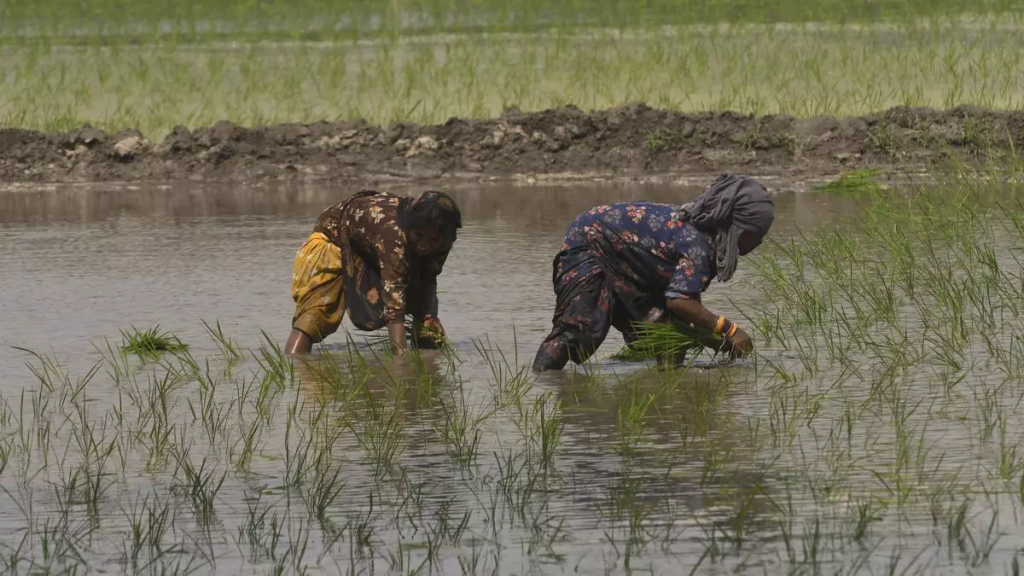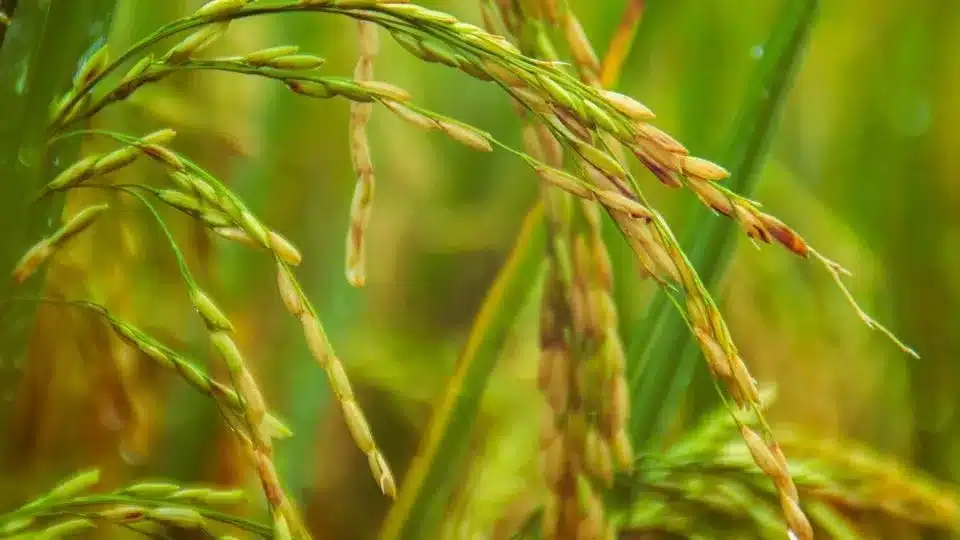Tags
Bayer plans to bring 1 million hectares under its direct-seeded rice in India by 2030
To take its DirectAcres programme to other Asian countries; Introduces its DSR system at 6th International Rice Congress in Manila

Moving from transplanted puddled rice cultivation to DSR can help farmers to reduce water use by up to 40 per cent, GHG by up to 45 percent and reduce farmers’ dependence on scarce and costly manual labour by up to 50 percent | Photo Credit: KRISHNAN VV
Bayer plans to bring one million hectares in India under its direct-seeded rice (DSR) by 2030, supporting over two million early adopter smallholder rice farmers through its DirectAcres programme. Bayer announced the introduction of its DSR system at the 6th International Rice Congress in Manila on the UN World Food Day.
Moving from transplanted puddled rice cultivation to DSR can help farmers to reduce water use by up to 40 per cent, greenhouse gas emissions (GHG) by up to 45 percent and reduce farmers’ dependence on scarce and costly manual labour by up to 50 percent, the company said in a statement. The introduction of the DSR system is fully in line with Bayer’s recently announced approach to regenerative agriculture which will enable farmers to produce more while restoring more.
Driven by these advantages, DSR has the potential to be transformational with 75 percent of total rice fields in India expected to switch to this cultivation method by 2040, in comparison to roughly 11 per cent today.
Bayer said its DirectAcres has seen considerable success with 99 percent of Indian farmers achieving successful plant establishment and 75 per cent a higher return on investment compared to rice grown using the conventional transplanted method. Bayer plans therefore to introduce DirectAcres in other rice-growing countries in Asia Pacific, starting with the Philippines in 2024.
“We are building entire systems based on regenerative agriculture practices that create value for farmers and nature alike and that help address the issue of global food security,” said Frank Terhorst, Head of Strategy & Sustainability at Bayer’s Crop Science division.
“Direct-seeded rice is an excellent example of a system that holds huge potential to create a positive impact going forward.”
Traditionally, rice farmers first grow seedlings in nurseries before transplanting them in ploughed, levelled and flooded paddy fields. Over the subsequent months, the water level must remain constant to ensure that the plants establish and grow. Shortly before the harvest, the farmer drains the field. Some 80 percent of the world’s rice crop is today produced using this method.
Now, using advanced R&D capabilities, Bayer is designing climate-resilient rice hybrids with higher yields that can be sown directly in the soil and bred specifically for the different farm environments. By removing the standing water, machinery can perform much of the otherwise time-consuming and arduous, manual farming practices. The reduced dependence on excess water — used partly to prevent weeds — means access to crop protection solutions will be key to the transformation. To address this, Bayer is developing new crop protection solutions including a new rice herbicide to ensure a successful and durable weed management programme for the direct-seeded rice system.
FarmRise
Additionally, smallholder farmers are supported by Bayer’s digital platform FarmRise which gives farmers access to advisory services, necessary machinery, other inputs and services and with a longer-term aspiration to provide rice farmers with data-driven insights to empower them to make better agronomic decisions. FarmRise also connects smallholders to the company’s Carbon Programme enabling them to earn additional revenues as they reduce emissions.
DSR has the potential to change this by reducing water use and the GHG emissions created by methane-emitting bacteria that thrive in standing water. The reduction of on-farm manual labour — through mechanisation — addresses the issue of continuous labour shortage in the Indian countryside due to rapid urbanisation. This has been recently confirmed in the Farmer Voice study supported by Bayer: 22 percent of Indian smallholder farmers see labor costs as one of the biggest challenges to their operations.
“The need to come together to shape more economically viable and sustainable rice cultivation systems has never been so pressing,” explained Mike Graham, Head of Breeding at Bayer’s Crop Science Division. “Our direct-seeded rice system will help smallholder rice farmers adapt to, and mitigate climate change while running profitable businesses, improving their own and community’s social well-being.”
https://www.thehindubusinessline.com/economy/agri-business/bayer-plans-to-bring-1-million-hectares-under-its-direct-seeded-rice-in-india-by-2030/article67426334.ecePublished Date: October 16, 2023






